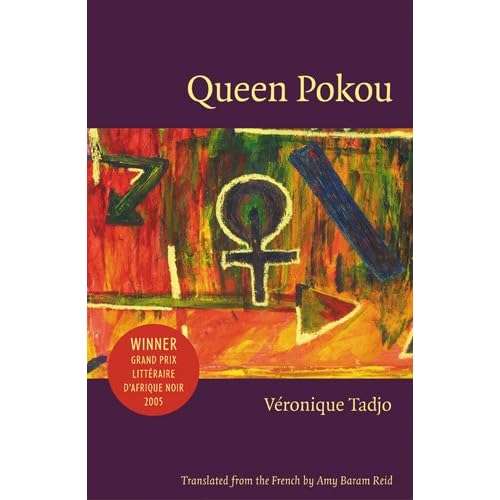The Many Faces of Queen Pokou

I just read a beautiful translation of Véronique Tadjo’s Queen Pokou by a prof here at New College, Amy Baram Reid. Amy was my professor fifteen years ago; one of my favorite classes in college was her course called New Worlds, New Stories: Women Writing in the Americas. As a matter of fact, I discovered one of my all-time favorite books, Michelle Cliff’s Free Enterprise, in that course, as well as developing a new appreciation for and understanding of gender politics through literature.
In Queen Pokou, Véronique Tadjo re-imagines the 18th-century Western African legend of Queen Pokou, who according to said legend, threw her baby into a river in order to appease the gods and save her exiled people. The river parted, Pokou’s followers crossed, and the Baole people were born out of Pokou’s cries: “Ba-ou-li. Ba-ou-li (The child is dead).”
This book exists as a series of concentric maybes. It’s beautiful in its rendering of the grief of a mother to, alternately, the fear-inducing power of a queen coming into her own. One iteration of Tadjo’s re-imagining, “The Atlantic Passage” asks, “But what if Abraha Pokou had refused the sacrifice?” and takes Pokou and her son to the Americas via the slave trade.
Being a big fan of retellings in their ability to redistribute power and deconstruct prohibitive worlds, I like what Amy Baram Reid says in the book’s afterword:
February 25th, 2011 / 2:26 pm
